As a civil engineer, you know how to build stuff. But do you know how to build your own resume? Well, if you don't, you're in luck. Because we do know how to build your resume, and we're going to teach you.
Or if you want you can use our resume builder for free.
Resume Format
Recruiters are most familiar with the reverse-chronological resume format. This is because the reverse-chronological is the most popular format for resumes and it helps to highlight important points such as your work experience. It also is the most readable resume format and the neatest as well. However, if you are a fresh graduate, you should use the skills format to highlight your skills over your experience.
A perfectly formatted civil engineer resume
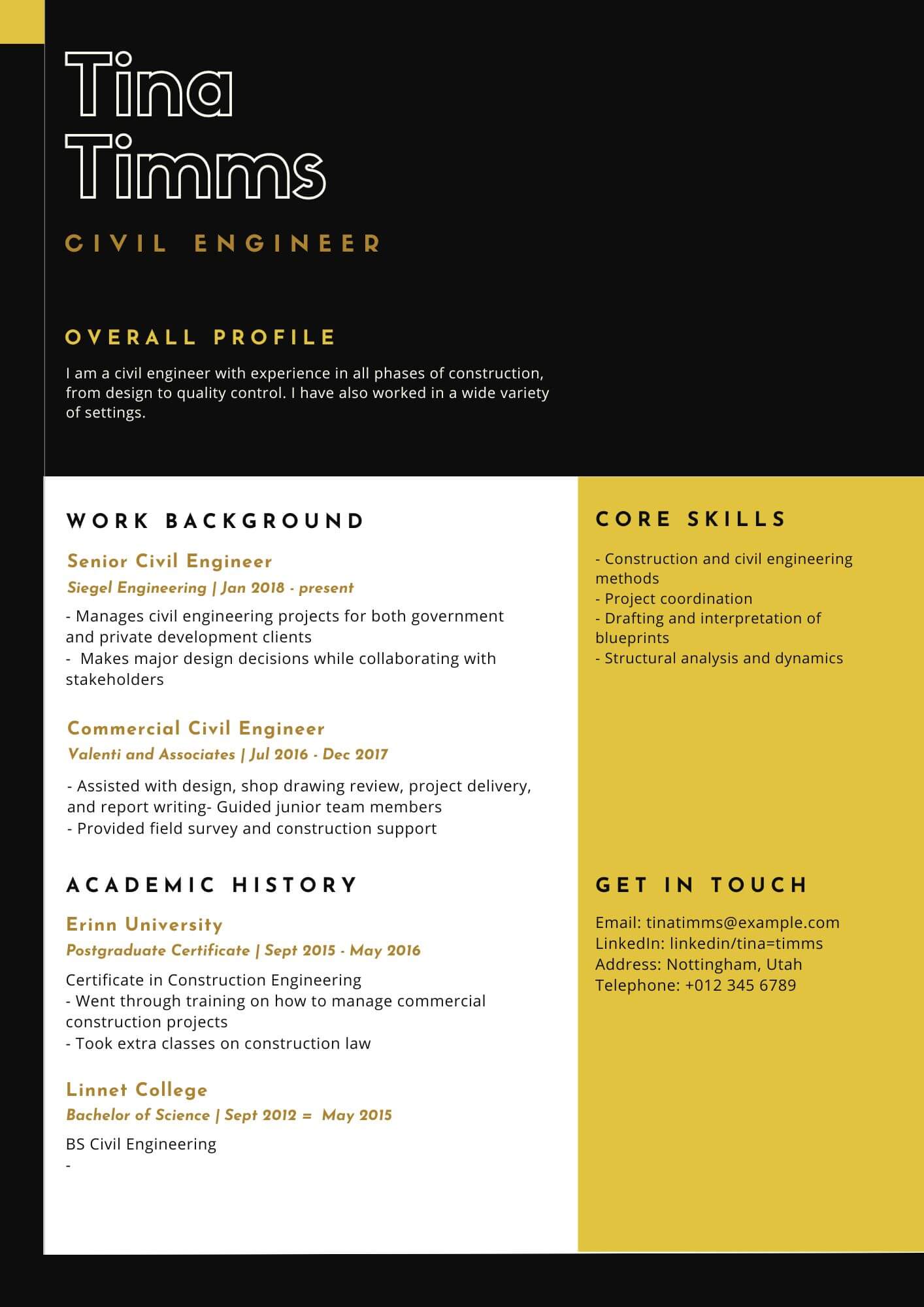
Contact Details
Hiring managers get hundreds of applicants for a position so they need to know how to contact you for an interview. It's easy for them when your contact details are on your resume, so they know exactly who to call. Besides your name and position, you should add your email, telephone number and address (city and state). You can also add a link to a professional profile such as LinkedIn if you wish.
How to share contact details
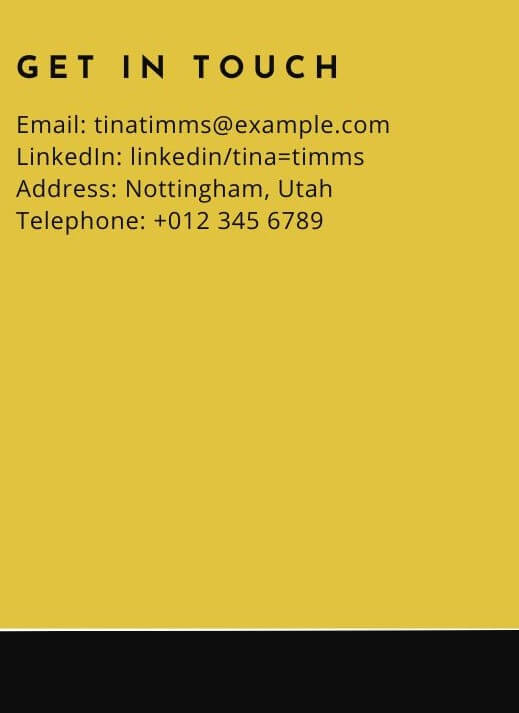
Resume Summary
A resume summary is two to three sentences on your career. This is one of the first things that hiring managers look at when they glance at a resume, so your summary has to make an impression. Try to avoid buzzwords that negatively impact your resume.
Not sure whether you have buzzwords on your resume, try the buzzword finder tool.
An ideal resume summary

Work Experience
Your experience matters a lot when it comes to civil engineering. Companies like to know that you have been dedicated to your work and can handle unexpected situations. You should mention the company you worked for, how long you worked there and the title that you held in this section. You should also add two or three bullet points for each workplace that details your responsibilities, awards or even quantifiable success. Try using keywords and action verbs that make your resume stand out from other applicants.
Not sure what keywords to use? Try Cresuma's keyword finder tool.
An example of a great work experience section
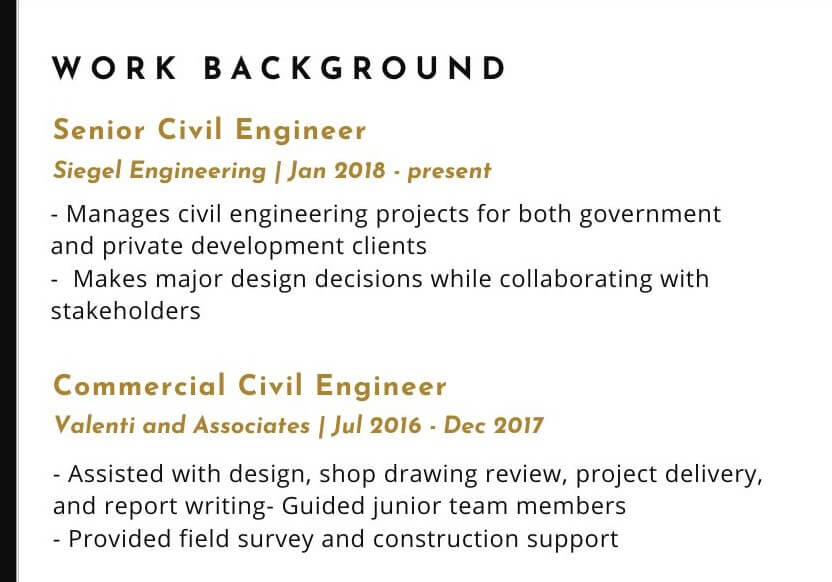
Academic History
Your educational history helps companies to know that you have the requisite technical skills to work as a civil engineer. Mention the name of the institution you studied at, how long you studied for and the degree that you were awarded for each qualification.
The best way to highlight your education
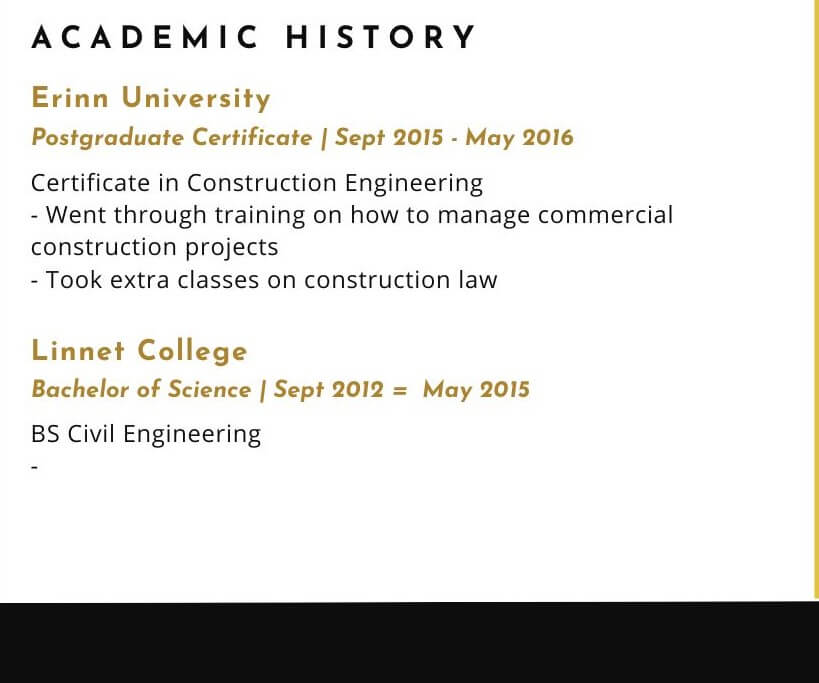
Skills
Your skills are your selling point. They are what convinces a company to hire you. You should include a mixture of hard and soft skills in your resume to increase your chances of being hired.
An example of a skills section in a civil engineer's resume
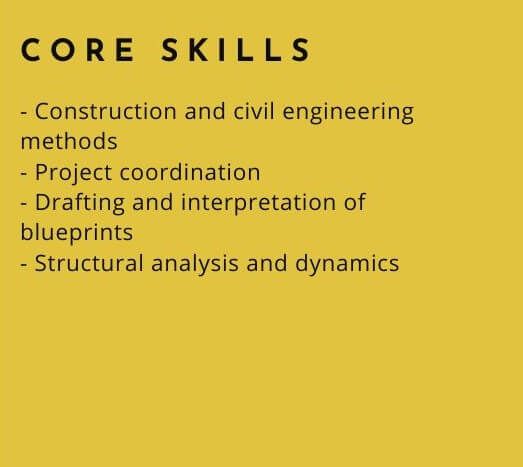
Additional sections
If you have some space to fill, you can fill out your resume with additional sections that are relevant to your career. Try adding awards and qualifications, hobbies, or languages that will help your resume to stand out from other applicants.
Now, go and build the best resume you can. Or visit our career guides blog for more resume help or check our resume samples page for more information.

